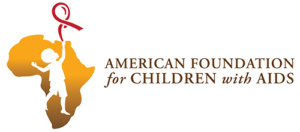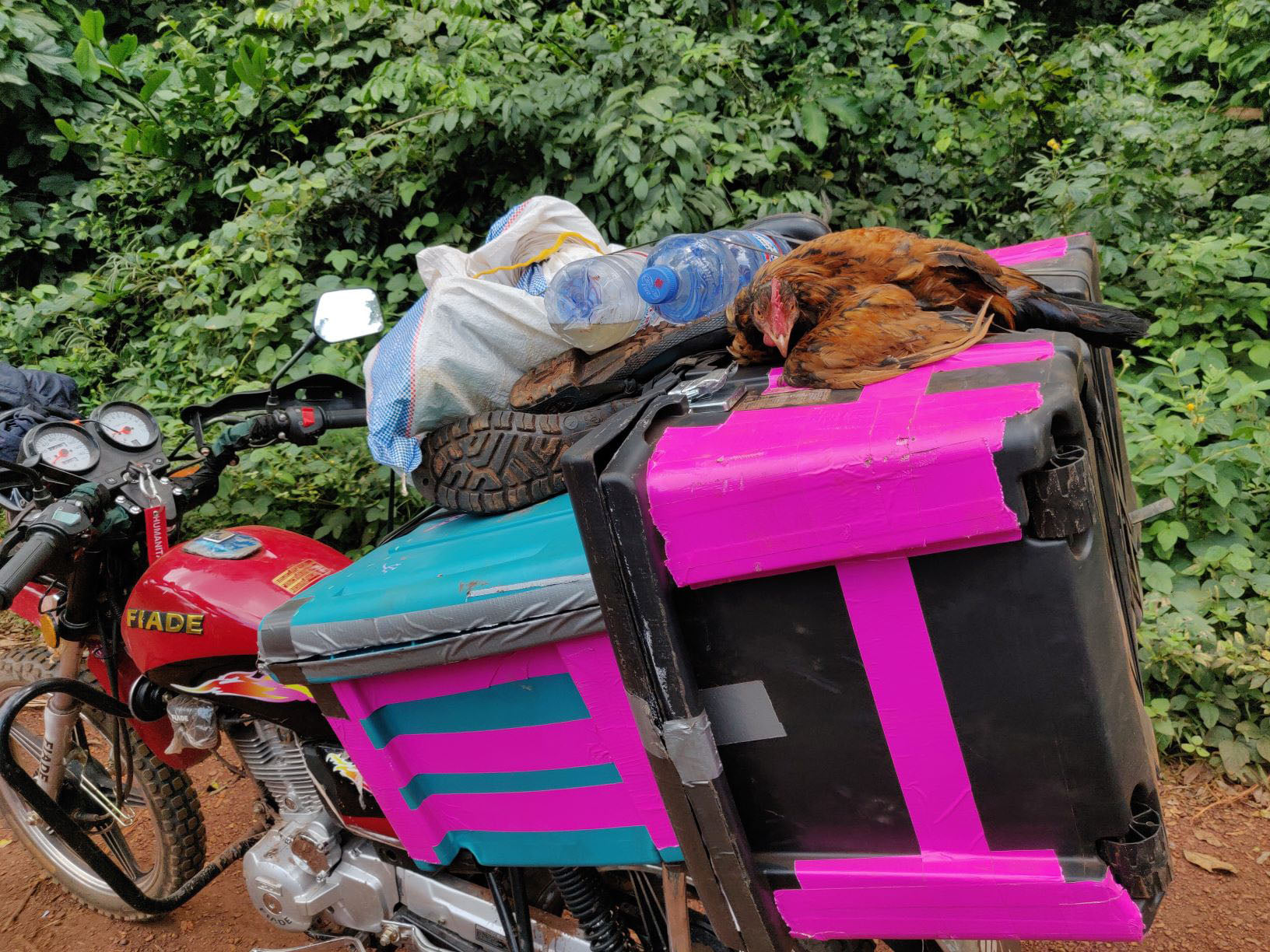I have forgotten all about the immigration (DGM) man who had visited us at the chief’s house and haven’t thought of him at all until we see him on our way back to Gemena, standing on the side of the road, flagging us down and telling us to stop. Frito is ahead of us, flying down the road, while Toussaint follows behind, never too far, so he is with us when we are told that I must follow the DGM man to the chief’s house. Mandaba asks what the deal is and is told that we do not have permission to dig wells and therefore, my passport is to be confiscated. Arguing ensues, as we never dug wells and he knows exactly what we were doing because he was there. A policeman joins the group and discussions about me and our work continue between the three men, with me standing to the side.
I am quiet as my eyes go from man to man and I notice that Toussaint is silent, too, taking it all in. His face is impassive, but I can see his body is tense and he is ready for a fight, sitting there on his motorcycle, eyes covered by wrap-around sunglasses. The arguing ends with me being told that I must follow the policeman and that I must go to the chief’s house. Mandaba tells me to get back on the motorcycle but the police stops me, saying I must walk with him. I get the nod from the guys and I walk by the police while they follow on the motorcycles until we reach a round hut-like structure where the chief sits with hands scratching his round belly, leaning back into the bamboo chair. He lazily waves us to other chairs and asks what the problem is. It seems we are in a court situation although I am not entirely sure. I lean to Mandaba and whisper, “whatever happens, my passport cannot be taken from me”. He nods and listens as the DGM guy states his side of the story with no interruption from our side. Mandaba does the same when we are given the floor and we wait. The chief has questions, which are answered, and then I hear the fateful word, “passport”.
My passport is in a small backpack inside a crate, tied to the back of Toussaint’s bike. On top of it, two pairs of rubber boots are tied, as well as the chicken given to us in thanks for helping the village. So, when the chief says I must hand over my passport, Toussaint flatly refuses to take it out. All his pent-up words come flowing out and I cannot follow the barrage as he lets loose. I watch in fascination as this quiet guy has his say, looking fierce and determined. I am not sure what his talk accomplishes, though, as Mandaba and I receive permission to leave to talk to another chief, looking for help, with the policeman following us. The second chief agrees that I should have never been arrested and that there is no proper place to keep me. He doesn’t offer any more help, though, so we return from where we came. Mandaba stops to speak to Frito who has backed up to find out what is happening and I walk on with the policeman, who cheekily asks me for a solar lamp. I look at him and say, “no” and continue walking, much to his surprise.
While waiting for the verdict, the DGM guy tells Mandaba that the lamp I gave him is broken and in a gesture that is so kind and respectful, Mandaba goes to help him. He helps this man who has arrested me falsely and who has the power to release both me and my passport. He kindly looks over the lamp and explains to the guy how to use it. I fume as i sit on my crooked bamboo chair, hoping the stupid lamp never works again, but watching Mandaba teaches me a lesson in kindness and gentleness that I never expected to learn here in this world of strong words, loud voices, and menacing faces. I decide not to be angry or frustrated but to ride this whole thing out and I offer to stay if they want me to, as I have snacks, water and a hammock. Mandaba doesn’t bother to translate this and instead, he sits down with me to hear the verdict.
I am to hand over my passport, I am told, and it will be returned to me tomorrow, in Gemena, where Mandaba and I are expected to appear at the main DGM office. Knowing that all that is required for me to be free with a passport is a bribe to each of the men, I slowly follow Toussaint to the bike to get the passport, in order to hand it over. The chicken gets untied, as do the boots, water bottles, and crates. I find my passport and hesitantly, ever so slowly, I hand it over, watching as it gets tucked into a coat pocket.
Two and a half hours after the incident started, we are back on the bikes, headed to Gemena, with a cheery “bon voyage” from the chief. We are each stuck in our thoughts, knowing that things didn’t go too well back there. Once again, I get off the bike to slog through the long sand pit ahead because the motorcycle sinks too heavily with two of us on it.
The walk through the sand that seeps into my sneakers allows me to reflect on what has happened. I know that if I pay a bribe now, I will be paying bribes for all my days, so the passport had to be given over. I understand that, I really do. Yet, I am left feeling like a person without a country, without identity and I hate that feeling.


